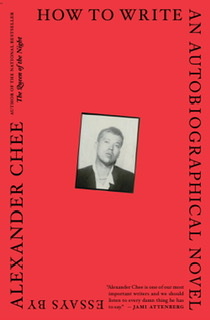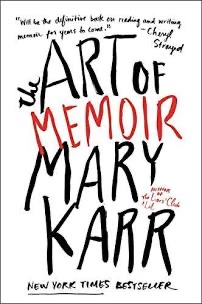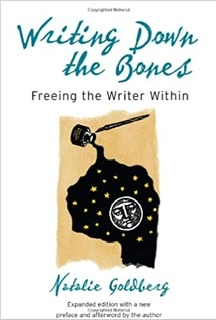When I decided to start writing a memoir last fall, having contemplated it for many years, I knew I would need a lot of guidance. As my new morning writing routine kicked into gear, a favorite part of it was selecting books about writing to read, choosing well experienced authors as my guide. The first was a book I had on hand from one of my writing classes when I started signing up for classes in the months after getting sober. Marion Roach Smith’s, The Memoir Project, could be read in an afternoon but I chose to savor each chapter by reading just a little bit each day. The best advice I gleaned from it was to a) write every time with intention and b) always ask yourself what is this about. She incorporated bits of her own story and these tripped my own memories and provided writing inspiration without the use of prompts which she doesn’t like to use in her teaching. There is also a personal connnection to Marion because I worked with her husband for many years and met her on a few ocassions. She is personable and striking with beautiful red hair and you can tell she pays attention.
For my next book, I chose Alexander Chee’s, How to Write an Autobiographical Novel. While it is not a writing book per se, I found the biographical stories he wrote to be beautifully written. He is my age and grew up in a small Maine town which is somthing I can relate to. His stories reminded me of my own stories even though he is part Korean and gay, two things I am not. These stories were marvelous prompts to write about my own experiences, particularly high school since we were of the same era and many times it offered a contrast to my life, particulaly my path to writing. He knew early on he wanted to write and doggedly pursued it from the beginning. I had absolutely no confidence that I could be any good at it and gave up before I got started. The idea I came away with here was to write as if your life depends on it, as if you were dying. The point was driven home in a story he wrote about a barista friend who was writing a book and died of AIDS before finishing it. Chee wrote a memorial piece about the man and it was on display in the coffee shop’s window and it was a daily reminder for him to keep writing.
The Writing Life by Annie Dillard came next, mostly because she had been one of Chee’s writing teachers and he quoted her often, particularly about writing like you are dying. I like to go right to the source when another book is mentioned and I loved her writing style in this book, how she eloquently spoke of the writing life, how you must write even when it is hard and though much of it won’t even be usable. You must keep on. Her writing was a solitary endeavor, often in a small cabin or room containing the bare minimum of what she needed to work each day without distraction. Her writing began most days at noon and she would finish late into the night when she would reconnect with her writer husband. The next day would be more of the same. I have yet to read anything else by her but Pilgrim at Tinker Creek for which she won the Pulitzer Prize is now on my TBR list.
I chose Mary Karr’s The Art of Memoir to follow because I thought it would be all about memoir writing, maybe even with a blueprint on how to do it. Instead it was a study of memoirs and mostly drew on how other writer’s did it and she talked about several works I was not familiar with. It felt like many of them were tell-all books about not so nice childhoods (including her own) and this wasn’t exactly the subject matter I was steering toward. I kept picking it up each day, though some days I had a harder time getting through the chapters. Maybe I wasn’t able to latch on to her sometimes abrasive style.
Next came Natalie Goldberg’s Writing Down the Bones: Freeing the Writer Within. Goldberg’s voice is warm and inviting and the chapters were quick and engaging. It’s an older book, written in 1986, the year I graduated from high school and had no idea I would one day want to be a writer. Goldberg’s meanderings about writing were simple and clear and made you want to just sit down and write whatever was on your mind. I particularly liked the sessions she had with a friend where they’d meet at a coffee shop, spend the day writing and then reading each other’s work. It’s hard to find like-minded people who want to practice writing like this and it also reminds me of how this type of experience is far from what we are allowed to do during a pandemic. Swapping pages with other writers is one of my favorite parts of the writing mastermind I’m now participating in with other women across the country.
Because I read Anne Lamott’s Bird by Bird many years ago, I decided to refresh myself by rereading it and wasn’t disappointed. He style is more like that of a good friend commiserating with you about the process of writing. It’s a hard thing to do but try to manage it by writing every day on a regular schedule and by taking it in small bites. Much of her advice rings of good sense and stem from her working a twelve step program to stay sober, though she is a bit neurotic. I enjoyed the re-read and liked how she wove her own writing experience into the book.
Most recently I picked up a couple of books on a recent trip to the library, my first visit in nearly a year. I looked up books about writing and then made my way to 808 section of the Dewey Decimal system and browsed what the library had available. There was Escaping Into the Open, by Elizabeth Berg, an author I enjoy who writes about writing fiction and Joyce Carol Oates The Faith of a Writer. I am simultaneously making my way through them both.
But I’m finding that more important than reading about writing is picking up memoirs to see how other people are actually doing it. It’s important to know the category about which genre you choose to write. I’ve made my way through several books and feel like the work will never be done. Meanwhile, I’m working on the writing bit by bit and day by day, coming up with five to seven usable pages to share each week. You might call it the process of bird by bird.
Do you have any books about writing to recommend?
MC



